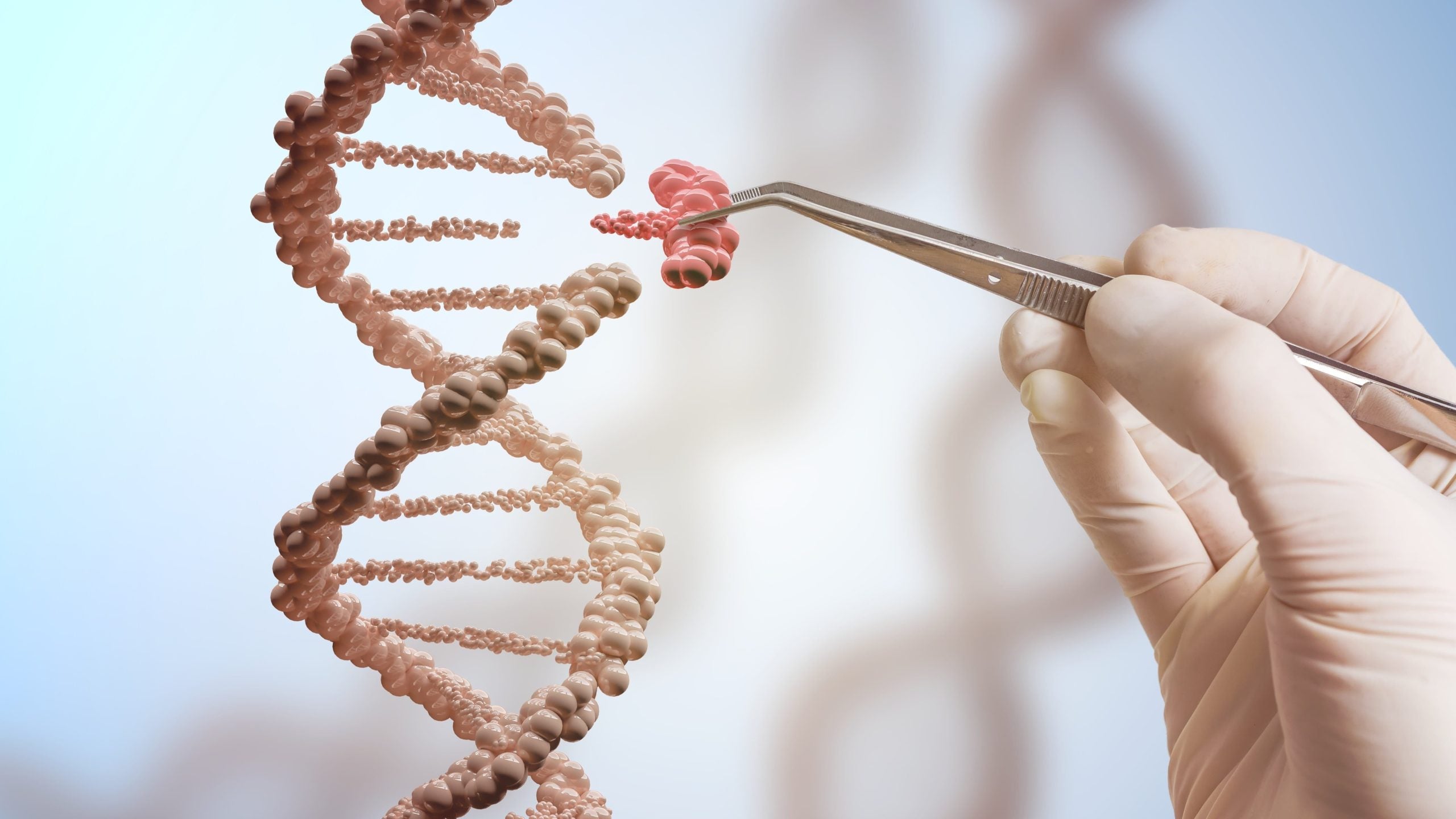

December 2023 marked an important milestone in the life of clustered regularly interspaced short palindromic repeat (CRISPR) therapies after Vertex Pharmaceuticals and CRISPR Therapeutics exagamglogene autotemcel received approval from the US Food and Drug Administration (FDA), following a nod from the UK’s Medicines and Healthcare products Regulatory Agency (MHRA) a month earlier.
As the first CRISPR therapy to hit the market exagamglogene autotemcel – which will be marketed as Casgevy – promises to be a one-time therapy for patients with sickle cell disease. It is a genetically modified autologous CD34+ cell enriched population that contains human haematopoietic stem and progenitor cells edited ex vivo by CRISPR-Cas9.

Discover B2B Marketing That Performs
Combine business intelligence and editorial excellence to reach engaged professionals across 36 leading media platforms.
Rodolphe Barrangou PhD, is the Todd R. Klaenhammer Distinguished Professor in probiotics research at North Carolina State University, Raleigh, and co-founder of Cambridge, Massachusetts-based Intellia Therapeutics, a developer of CRISPR gene therapies. “The FDA is the gold standard [in regulation],” says Barrangou. “The UK was first and as a result set the precedent and that is fantastic. But in the end, the FDA approval is on a different level.”
There have been a number of difficulties in conducting CRISPR trials including the ethical and practical difficulties of controlling and blinding these studies, low accrual rates due to concerns around the safety of the therapy and the R&D cost. The technology is also extremely difficult to master while maintaining a good safety profile, with many companies terminating trials of products after facing difficulties including Novartis, working with Intellia, which discontinued OTQ923, a sickle cell disease candidate.
Dr. Akshay Sharma, a haematologist at St. Jude Children’s Research Hospital in Memphis, Tennessee says there are still concerns about CRISPR therapies despite the Casgevy approval. Since potential longer-term adverse events (AEs) are yet to present in patients, and they have been studied in few patients, Sharma says there is still a way to go in the CRISPR therapy pipeline to ensure they are safe and effective treatment methods.

US Tariffs are shifting - will you react or anticipate?
Don’t let policy changes catch you off guard. Stay proactive with real-time data and expert analysis.
By GlobalDataDirector of oncology and haematology at GlobalData, Tatiana Kolesnikova, PhD, says: “GlobalData analyst consensus forecasts the global sales of Casgevy to reach $593m, reflecting its first-to-market advantage.”
GlobalData is the parent company of the Clinical Trials Arena.
Although there are candidates in trials, 88% of them are in the early stages of development, meaning it is unlikely to see another CRISPR approval any time soon, says GlobalData.
There are 24 other candidates which are in Phase II trials including a second candidate by CRISPR-Therapeutics, CTX-110, which is being investigated in oncological indications. If successful, GlobalData’s Catalyst Calendar predicts this drug to be the next CRISPR therapy to be globally launched.
In vivo amyloidosis candidate is in Phase III
The candidate furthest in development is Intellia Therapeutics and Regeneron Pharmaceuticals’ NTLA-2001, which is in a Phase III trial, the MAGNITUDE study, investigating the candidate in familial amyloid cardiomyopathy (FAC).
The study (NCT06128629) will enrol 765 patients and is due to end in December 2027.
“Amyloidosis is a disease in which an abnormal protein gets deposited in different parts of the body, because the body isn't able to make the proper protein or remove the bad kind of protein,” says Sharma. “By editing this gene, they're actually eliminating that problem.”
The primary outcome will be the composite outcome of cardiovascular (CV) mortality and CV events up to 48 months after dosing, while secondary outcomes will measure changes serum transthyretin (TTR) levels and scales like the Kansas City Cardiomyopathy Questionnaire (KCCQ-OS).
“Monogenic inherited disorders, such as some metabolic diseases, present an attractive target for genome editing therapy,” says Kolesnikova. “NTLA-2001 inhibits the transthyretin gene expression by intravenous delivery of Cas9 nuclease and guide RNAs packed in a lipid nanoparticle. GlobalData’s annual consensus forecast for NTLA-2001 will reach $1.4bn in 2029.”
Off the shelf therapy for B-cell malignancy adds value
Chinese company Edigene is developing the off-the-shelf ET-02 therapy for patients with relapsed and refractory B-cell acute lymphocytic leukaemia (ALL) and non-Hodgkin lymphoma (NHL), with r/r B-cell haematological malignancies.
The ongoing exploratory Phase II trial (NCT04933825) is investigating the incidence of adverse events, as per National Cancer Institute Common Terminology Criteria for Adverse Events (NCI-CTCAE ) v5.0 criteria, for a primary outcome.
Patients will receive conditioning therapy with cyclophosphamide and fludarabine followed by ET-02 injection. The study will investigate four escalating dose-levels of ET-02 using a "3+3" design. The trial is due to end in September 2024.
Barrangou says: “The potential of these therapies for lymphomas and leukaemias, cancers, and B and T cell engineering, commercially, scale wise and value creation wise have a lot of appeal.”

Sharma says the time saved with an off-the-shelf approach is valuable because patients may not need to be treated immediately. “As a result, this particular product adds value.”
“While the long-term durability and safety of CRISPR therapies in lifelong chronic disorders remains to be seen, the technology holds promise for precision medicine applications in oncology,” says Kolesnikova. Autologous CAR-T therapies have revolutionised blood cancer treatments but require long production times. “One way to minimise their vein-to-vein time is to use allogeneic T-cells modified to reduce the patient’s immune response to cell therapy.”
Phase II beta thalassaemia trial is investigating a Cas12 candidate
The Institute of Haematology & Blood Diseases Hospital is studying Shanghai Vitalgen BioPharma’s VGB-Ex01 in an investigator-led trial.
The Phase II trial (NCT06041620) is evaluating autologous CRISPR-Cas12b edited haematopoietic stem cells in transfusion-dependant beta thalassaemia subjects. The trial is due to enrol two patients and will complete in December 2025.
The primary endpoints investigate the safety for up to 24 months and the number of subjects with neutrophil implantation up to 42 days.
Secondary endpoints include the number of patients with transfusion independence (TI) for at least six months or 12 months after transfusion, the concentration of foetal haemoglobin (HbF) and total haemoglobin (Hb) and the proportion of circulating red blood cells up to 24 months.
VGB-Ex01 is a CRISPR-Cas12b therapy. Cas12b is a dual RNA-guided nuclease containing a single RuvC domain requiring both CRISPR RNAs (crRNA) and trans-activating crRNAs.
“Some people argue that for creating insertions or deletions, Cas12 is a little bit more effective than Cas9, though whether that's clinically relevant, and actually true - we don't know that yet,” Sharma explains.
“What I like about a Cas12b effector going to the clinic is it is showcasing the breadth and the depth of the CRISPR toolbox,” Barragnou says. “We have a whole toolbox available to us and the more tools we use, the better we're going to be able to customise our drugs to patients and diseases.”
Sharma adds that if efficacious, a one-time treatment for transfusion-dependant beta thalassaemia would be a huge improvement in quality of life (QoL) of this patient population who currently go for frequent transfusions and suffer the AEs as a result of those.

Dr. Akshay Sharma, a haemotologist at St Jude Children's Research Hospital in Memphis. Image credit: Dr. Akshay Sharma
“In the US, UK and Europe, blood transfusions are easily available but in other countries [like] China and India, where thalassaemia is quite prevalent, transfusions are not as easily available,” Sharma says. “[They're], a one-time treatment that eliminates the need for blood transfusions would be hugely impressive.”
VOR33 gives stem cells an invisibility cloak
Vor BioPharma Inc’s trem-cel, formerly VOR33, is an allogeneic engineered haematopoietic stem cells (eHSCs) candidate.
“CD33 is a biomarker of AML but is also expressed in several types of healthy blood cells,” says Kolesnikova. “VOR33 removes CD33 expression on healthy blood cells, preventing haematological toxicity of Pfizer’s CD33-specific antibody-drug conjugate Mylotarg (gemtuzumab ozogamicin).
The Phase II trial (NCT05309733) is enrolling patients with acute myeloid leukemia (AML) who are undergoing human leukocyte antigen (HLA)-matched allogeneic haematopoietic cell transplant (HCT).
Results from an earlier Phase Ia/II trial (NCT04849910), which investigated the candidate in the same patient group, were presented at the Annual American Society of Hematology (ASH) 2023 conference. In that update, primary engraftment at a median of 10 days with CD33-negative haematopoiesis in patients was observed, in addition to reduced haematopoietic toxicity with anti-CD33 treatment.
“They're giving the stem cells invisibility cloak so they can hide themselves while we can keep killing the leukaemia cells that are around them,” says Sharma. “ Other companies are trying to do something very similar, but I've never seen something in advanced clinical trials like this. If successful, this will open up the field.”
Vor BioPharma is conducting another Phase I/II trial (NCT05984199) which is estimated to enrol 24 patients with relapsed or refractory AML post HCT.
GlobalData’s analyst consensus forecast estimates VOR33 to generate $361m in sales in 2029.
Cell & Gene Therapy coverage on Clinical Trials Arena is supported by Cytiva.
Editorial content is independently produced and follows the highest standards of journalistic integrity. Topic sponsors are not involved in the creation of editorial content.






